This morning (July 1), at the request of Most Venerable Thich Thien Nhon, Chairman of the Board of Trustees, more than 18,000 pagodas and monasteries across the country simultaneously rang the bell and drum three times at 6 o'clock.
According to Venerable Thich Thien Nhon, July 1 is the first day of operation of the new provinces and cities after merging and operating the 2-level local government model nationwide. This is an extremely special historical event in the process of the nation entering a new era of prosperous development.
Most Venerable Thich Le Trang, Head of the Executive Committee of the Vietnam Buddhist Sangha in Ho Chi Minh City, conducts the bell and drum-ringing ceremony.
PHOTO: INDEPENDENCE
With the tradition of Buddhism accompanying the nation in every stage of history, the Standing Committee of the Executive Council requests the Vietnam Buddhist Sangha in provinces and cities; pagodas and monasteries nationwide to ring the bell and drum three times to pray for national peace and prosperity, chant sutras and perform spiritual rituals to pray for peace, arousing the strength of national unity, the sacred soul of the mountains and rivers of Vietnam.
At Vietnam Quoc Tu (HCMC), Venerable Thich Le Trang, Head of the Executive Committee of the Vietnam Buddhist Sangha in the new HCMC (after merging with the two provinces of Ba Ria - Vung Tau and Binh Duong) held a ceremony to ring the bell and drum of the Prajnaparamita Sutra. Attending were monks in the Sangha and a large number of Buddhists.
At exactly 6 o'clock, three bells and drums rang out in the solemn, sacred atmosphere. Then, Venerable Thich Le Trang presided over the chanting and the peace-praying ceremony.
In the temple, the largest bell is called the great bell, usually placed on the left (looking from the inside out).
PHOTO: INDEPENDENCE
The largest drum is called the Prajna drum, placed on the right side of the temple. According to Buddhist beliefs, the sound of the bell can resonate throughout the entire dharma realm. Monks send their prayers into the sound of the bell, bringing peace and happiness to all beings.
PHOTO: INDEPENDENCE
The bell and drum of Prajna are the sound of the Buddha's teachings.
Venerable Thich Le Trang said that Buddhism, with the spirit of protecting the nation and its people, Vietnamese Buddhism always accompanies the nation through the ups and downs and changes of the country. The bell and drum of Prajna in Buddhism are a Dharma sound to express the teachings of the Buddha, always majestic, awakening the heart so that we can live in awareness. From here, we can recognize suffering and transform suffering.
According to the monk, this morning (July 1), the national administrative apparatus began operating under the new streamlined policy. Buddhism, in the spirit of accompanying the policy, at exactly 6 o'clock, simultaneously rang the bell and drum of Prajnaparamita. This bell and drum has the meaning of inviting the Buddha to descend, proving the great event of the nation, a turning point of innovation to enter the era of peace and progress.
More than 18,000 pagodas nationwide simultaneously rang bells and drums on the morning of July 1.
Many Buddhists present at the ceremony could not hide their emotions when hearing the bell and drum of Prajna. Mr. Duong Ngoc Thanh (in Phu Lam Ward) shed tears and shared: "Today is a historic event of the country, hearing the bell and drum of Prajna I am very moved. I pray for world peace, country peace, happiness for all beings, everyone holding hands and stepping onto a new path."
Ms. Nguyen Thi Kieu Thu (also in Phu Lam Ward) also choked up: "As a Buddhist, every time I hear the Prajna drum, I am speechless. Last night I waited all night without sleep to go to the temple early in the morning to hear the Prajna bell and drum. At over 60 years old, I find that the richest thing is a peaceful mind."
In Buddhism, every time they hear the bell, practitioners are aware that it is the Buddha's words reminding them to live mindfully and awakened.
PHOTO: INDEPENDENCE
The Prajna drum symbolizes wisdom. Wisdom here does not mean knowledge or understanding through learning or cultivating, but wisdom that arises from keeping precepts and practicing meditation.
PHOTO: INDEPENDENCE
Similarly, Mrs. Ho My Hue (in Vuon Lai Ward) woke up early to prepare to be present on time for the ceremony. For Mrs. Hue, this was a historic moment, she came to the pagoda to listen to the bells and drums of the Prajnaparamita Sutra, praying for peace for the country, her family and herself.
Ms. Tran Nhat Trang (in Cau Ong Lanh Ward) was very proud and moved when the bells and drums rang out. "The monks said that Buddhism always accompanies the nation, in the moment of the country's destiny. And today, hearing the bells and drums, I feel sacred and proud to be a Vietnamese citizen, with faith in the country's development," Ms. Trang said.
The bell and drum of Prajna go together, carrying Buddhist wisdom. A single sound of the drum is like the power of the Buddha, the eloquent and meaningful declaration of the Buddha when he comes to life.
PHOTO: INDEPENDENCE
When ringing the bell and drum, Buddhists will feel as if they are inviting Buddha to reign within themselves, wishing for all beings in this world to follow the path of liberation and enlightenment.
PHOTO: INDEPENDENCE
Bell and drum at Quan Su pagoda (Hanoi)
PHOTO: GH
Most Venerable Thich Duc Thien, Vice President of the Executive Council and General Secretary of the Vietnam Buddhist Sangha, chants sutras at Quan Su Pagoda.
PHOTO: GH
Bell ringing at Bai Dinh pagoda
PHOTO: GH
In Buddhism, pagodas only ring the bell and drum during major events, vegetarian feasts, ordination ceremonies, and important festivals such as: full moon and new moon days, Buddha's birthday, Vu Lan festival, Shang Yuan festival, ancestors' death anniversary, and the rainy season retreat...
PHOTO: VU PHUONG



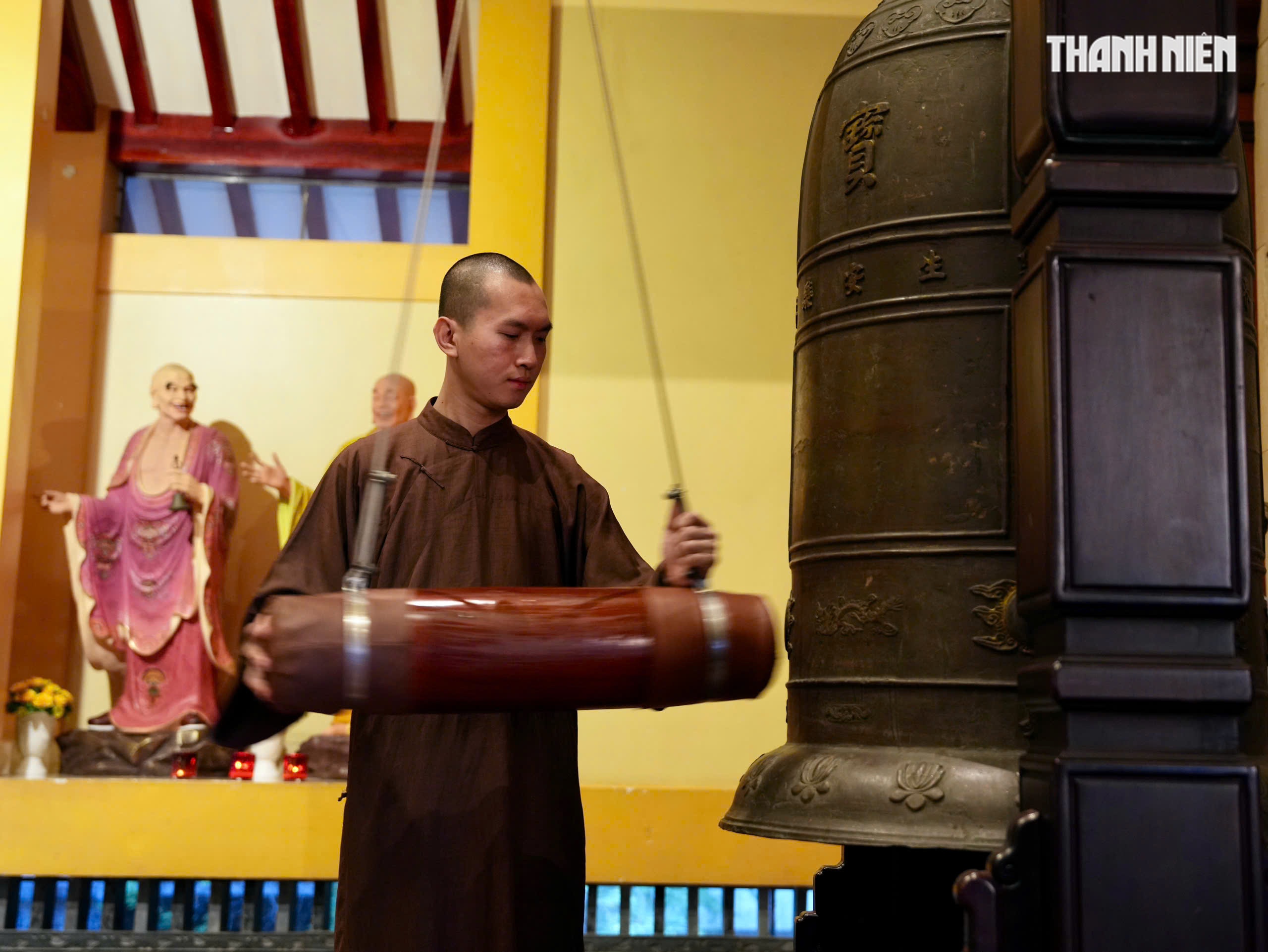



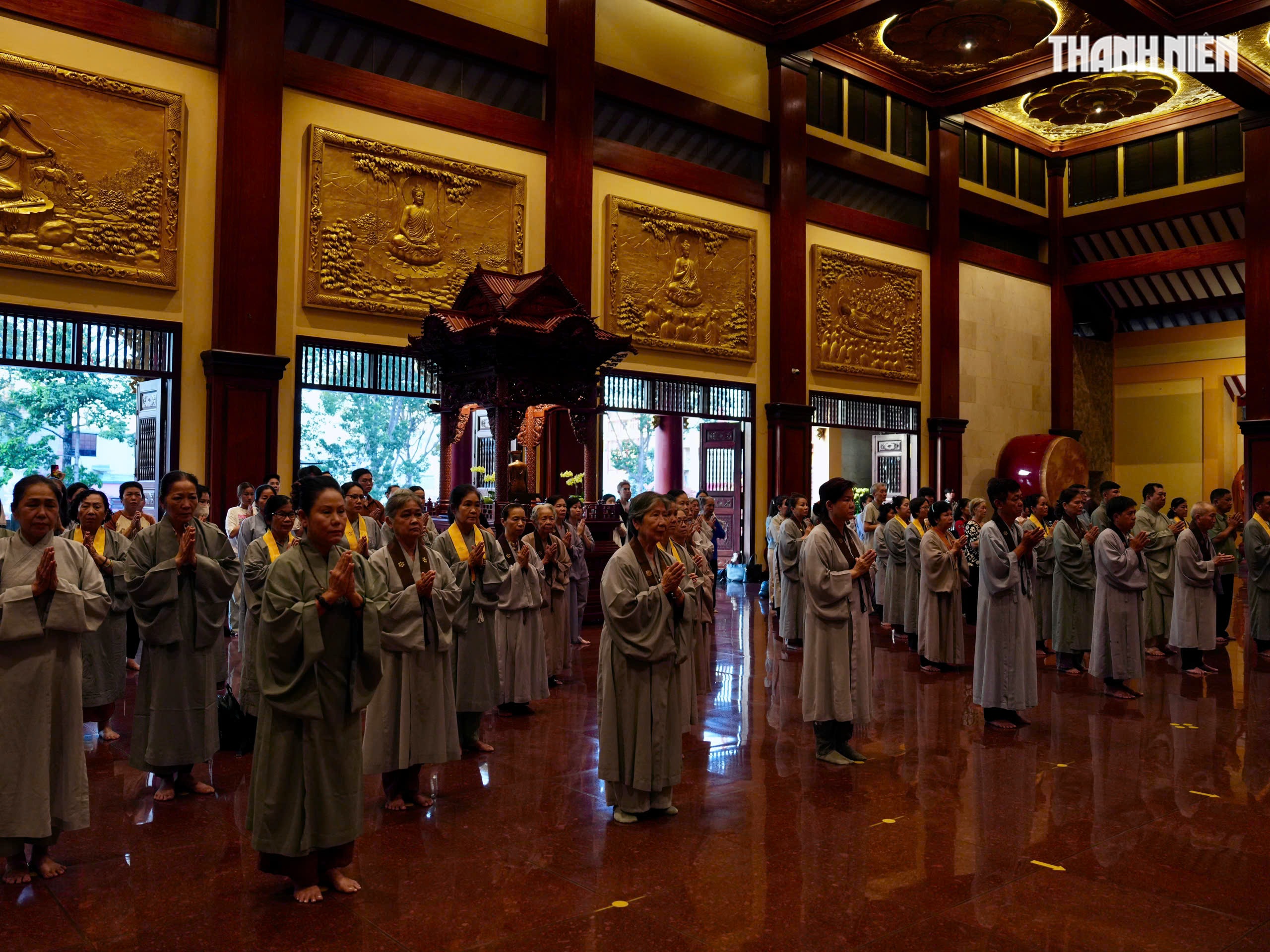


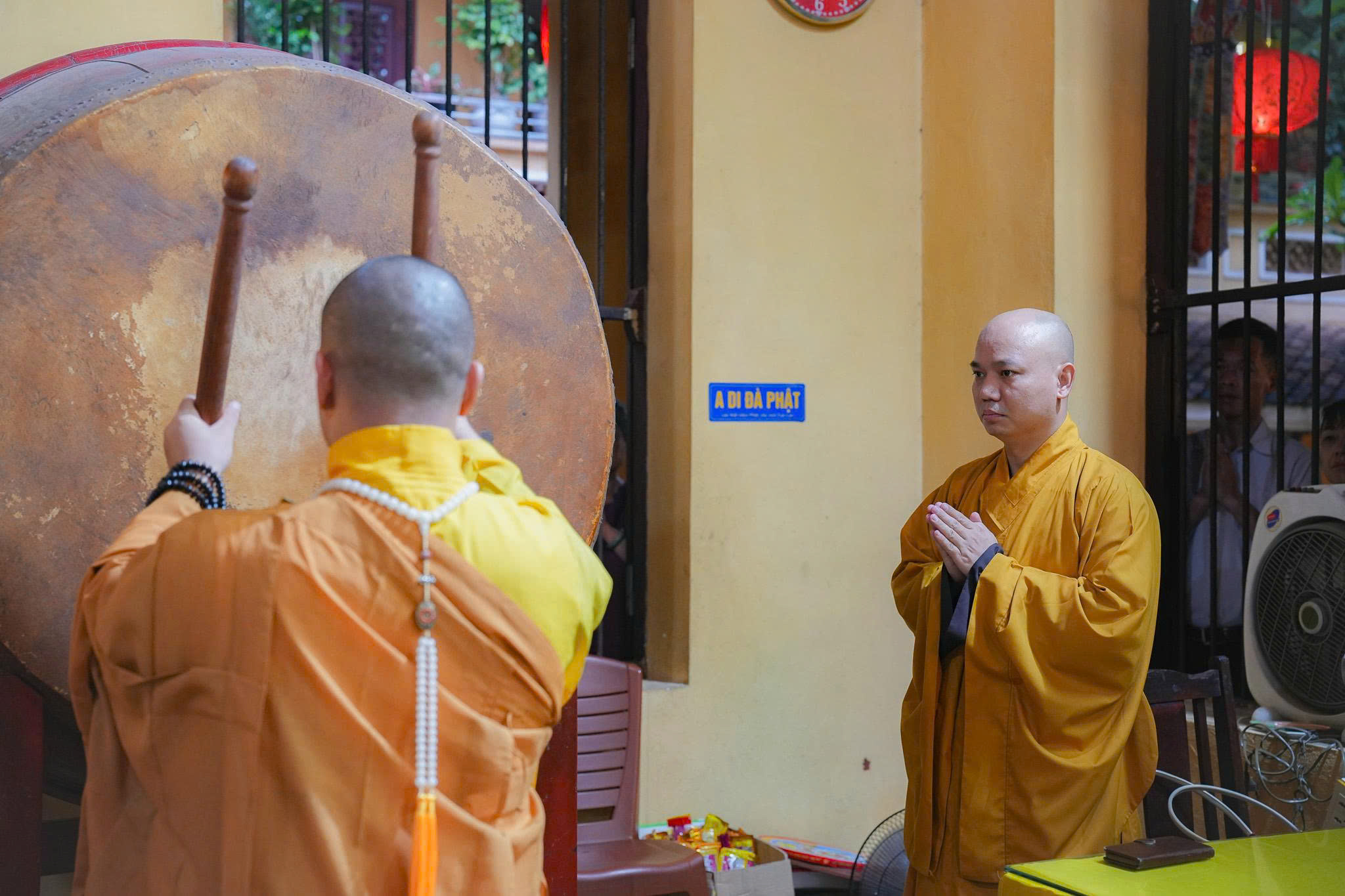
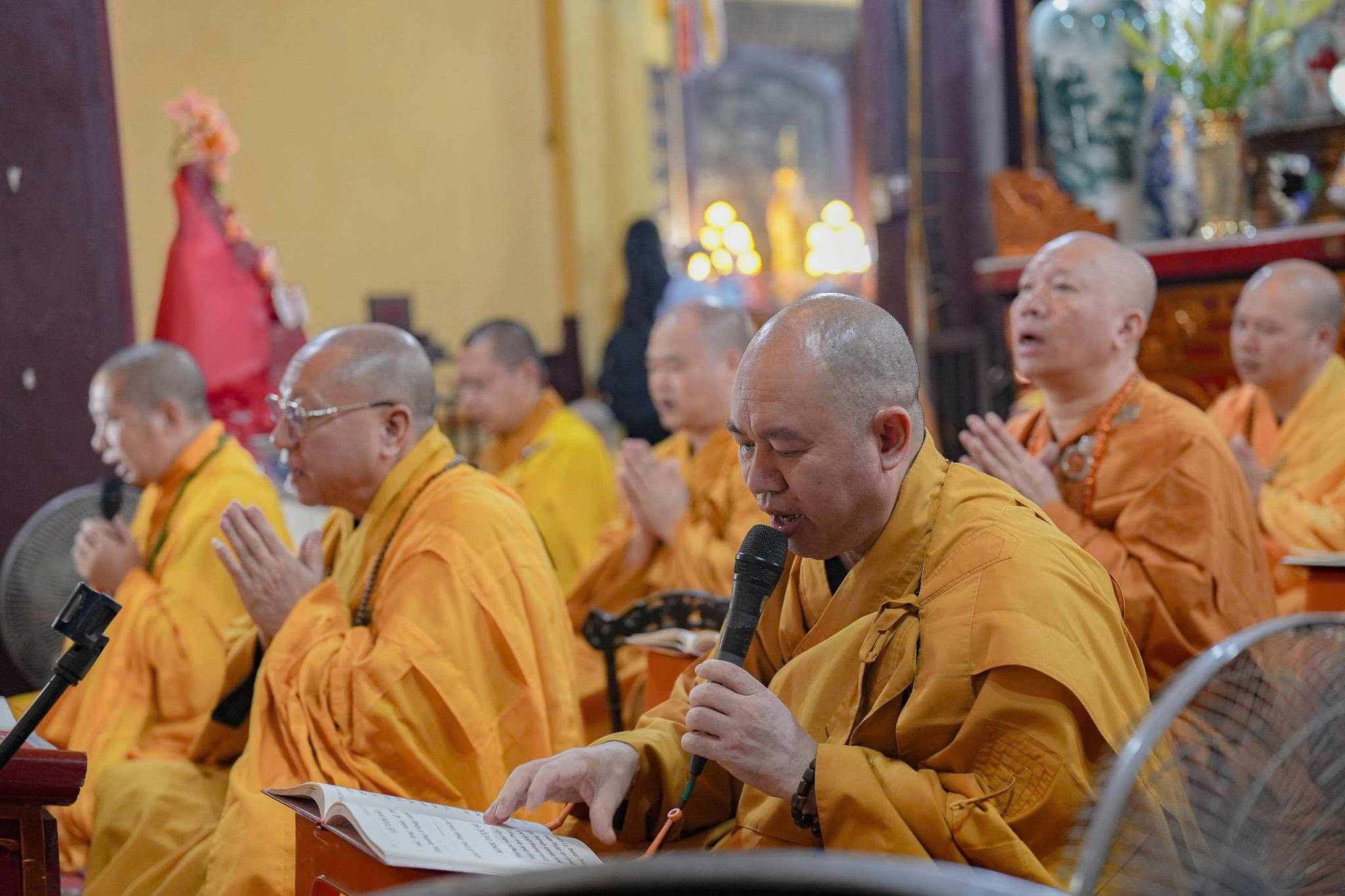
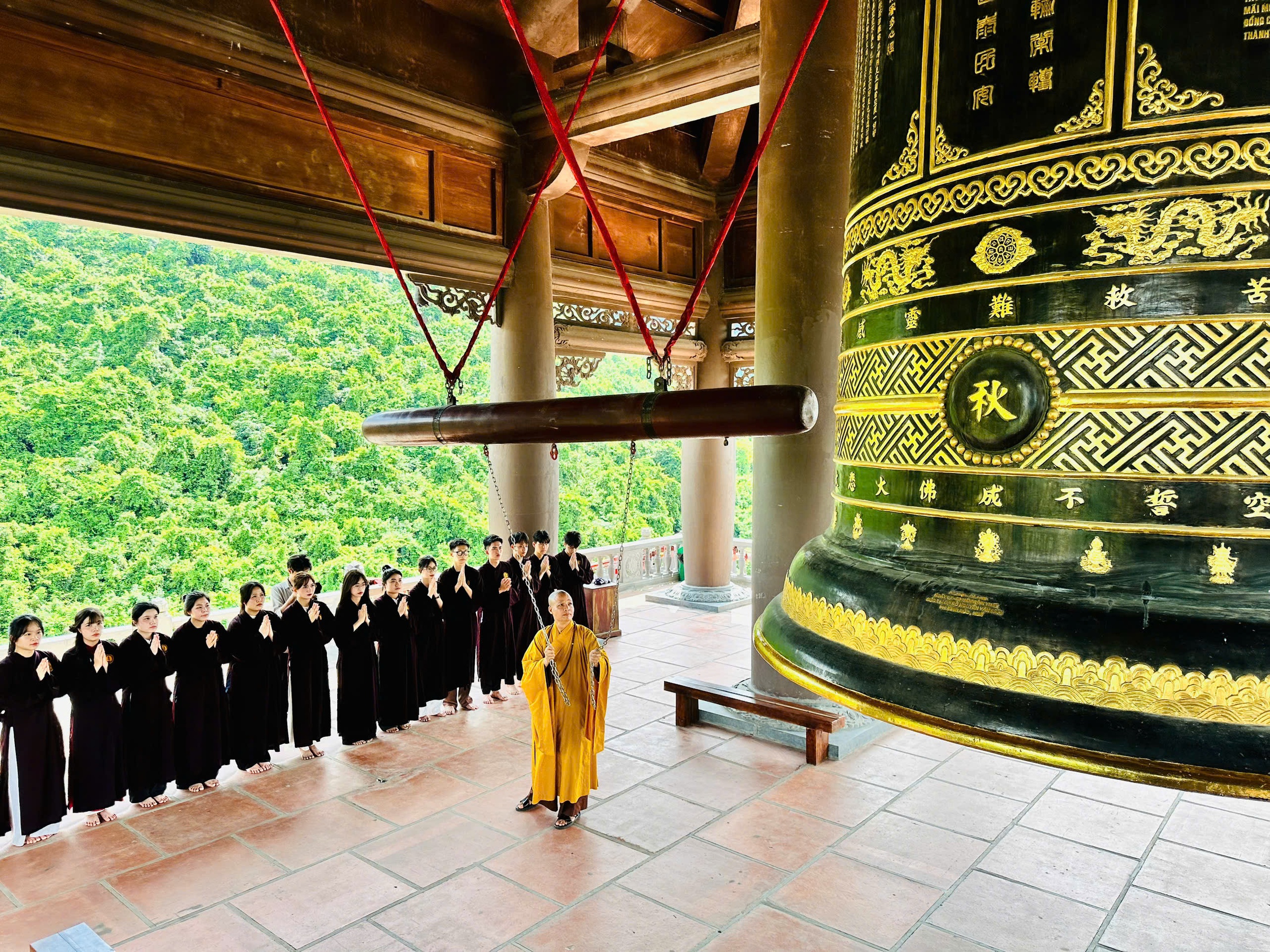
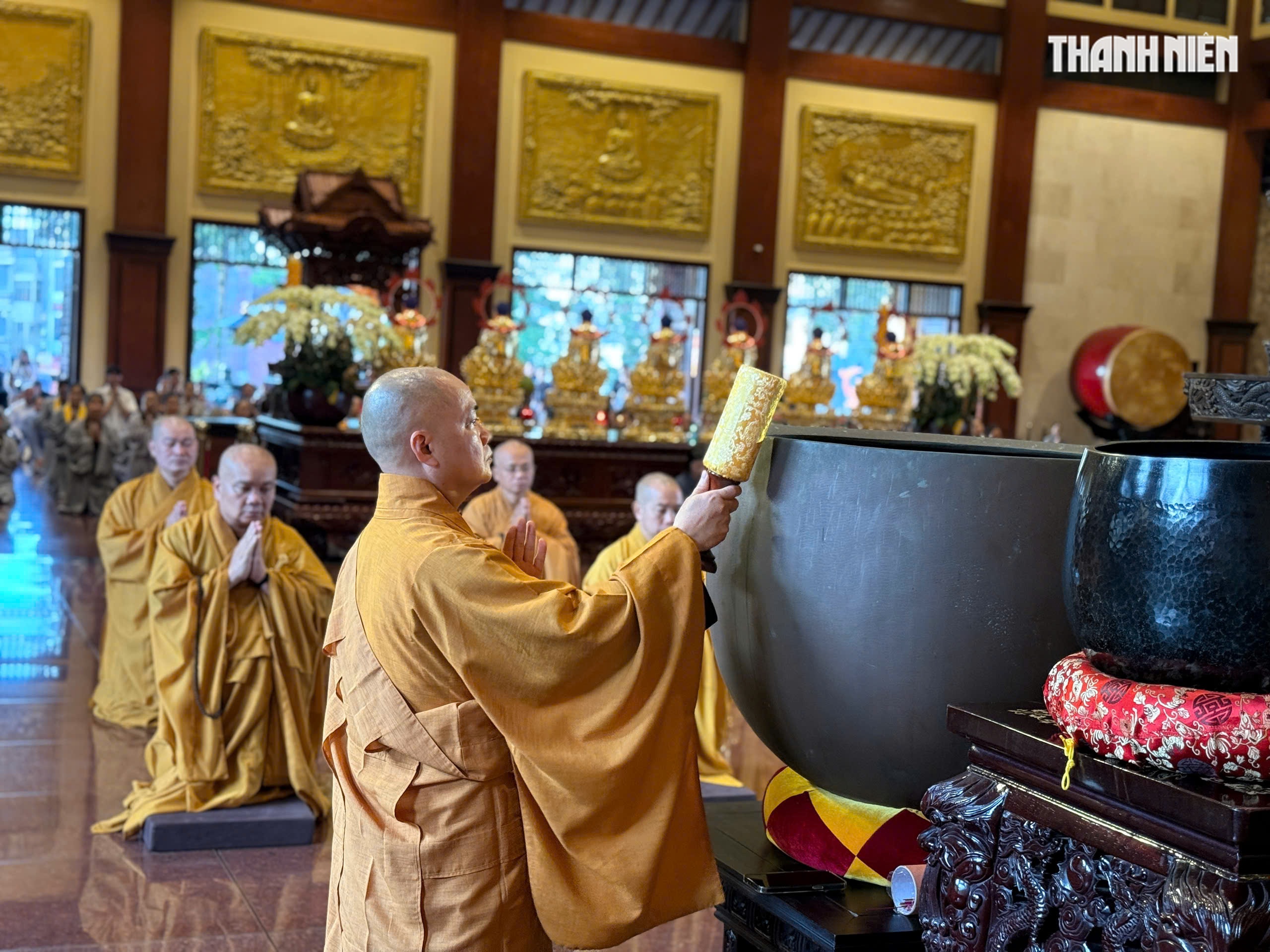



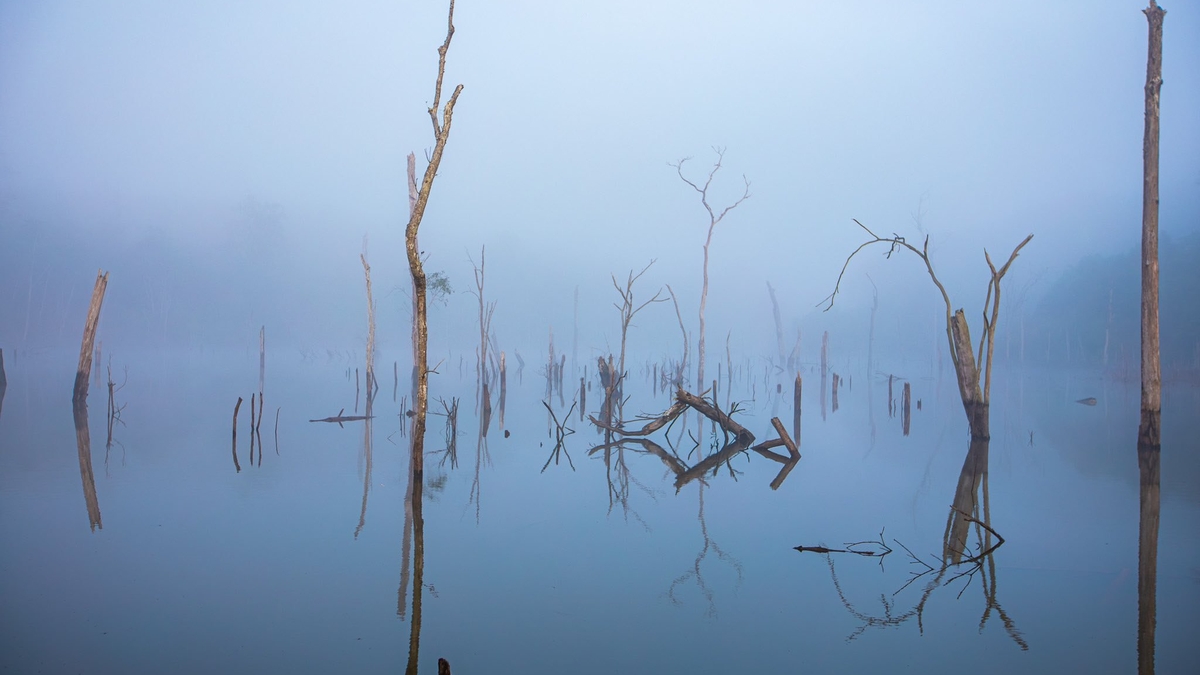


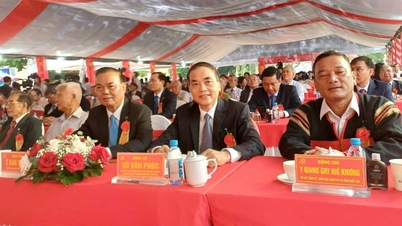

![[Infographic] Notable numbers after 3 months of "reorganizing the country"](https://vphoto.vietnam.vn/thumb/402x226/vietnam/resource/IMAGE/2025/10/4/ce8bb72c722348e09e942d04f0dd9729)

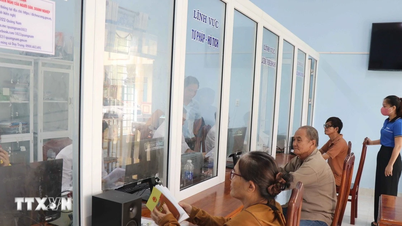




















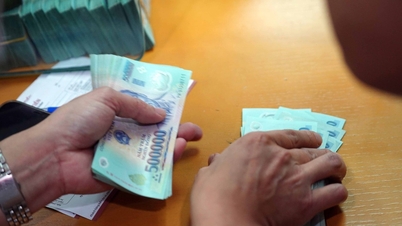

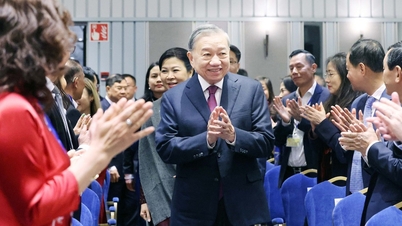
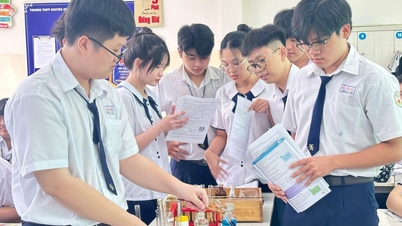
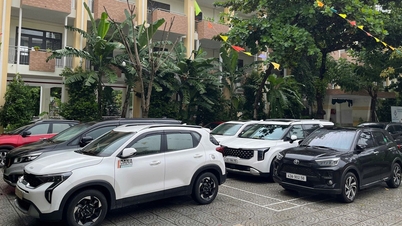
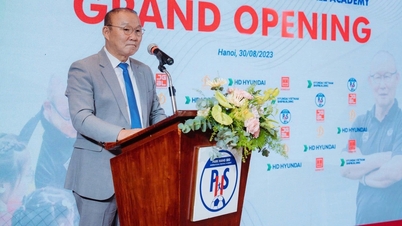
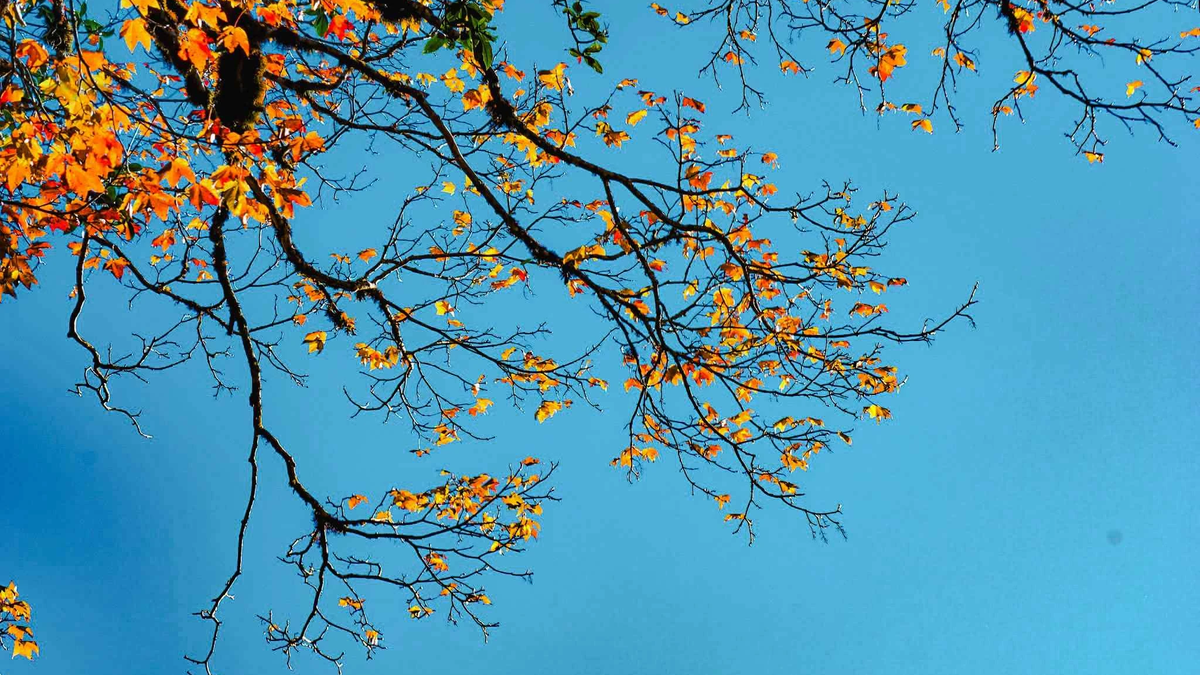


































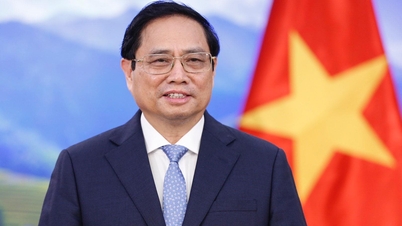

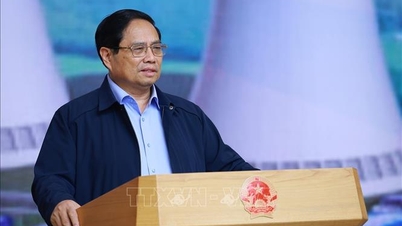

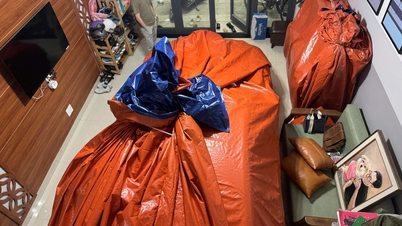
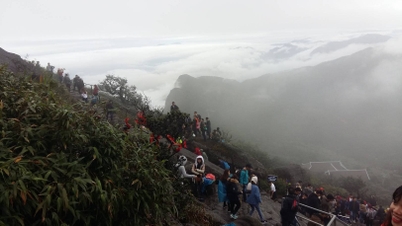



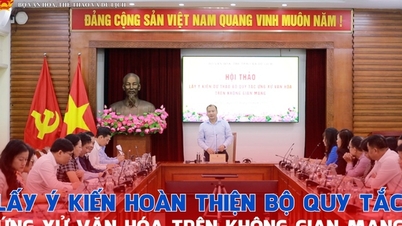
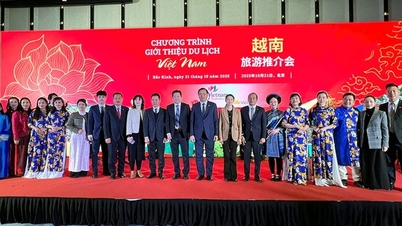
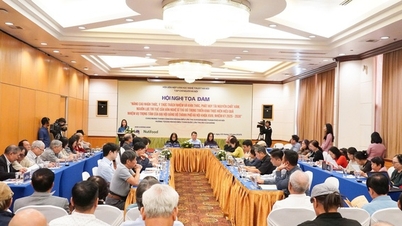
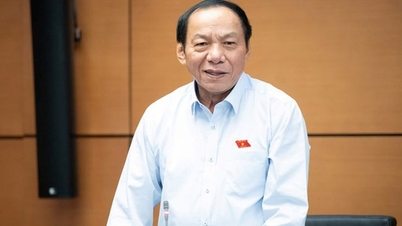
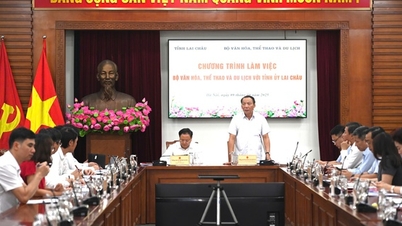
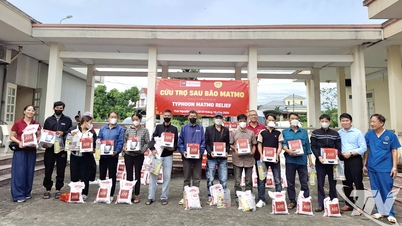
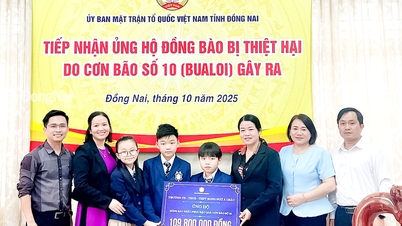


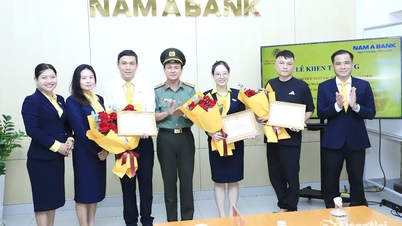

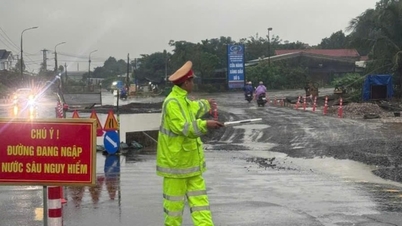













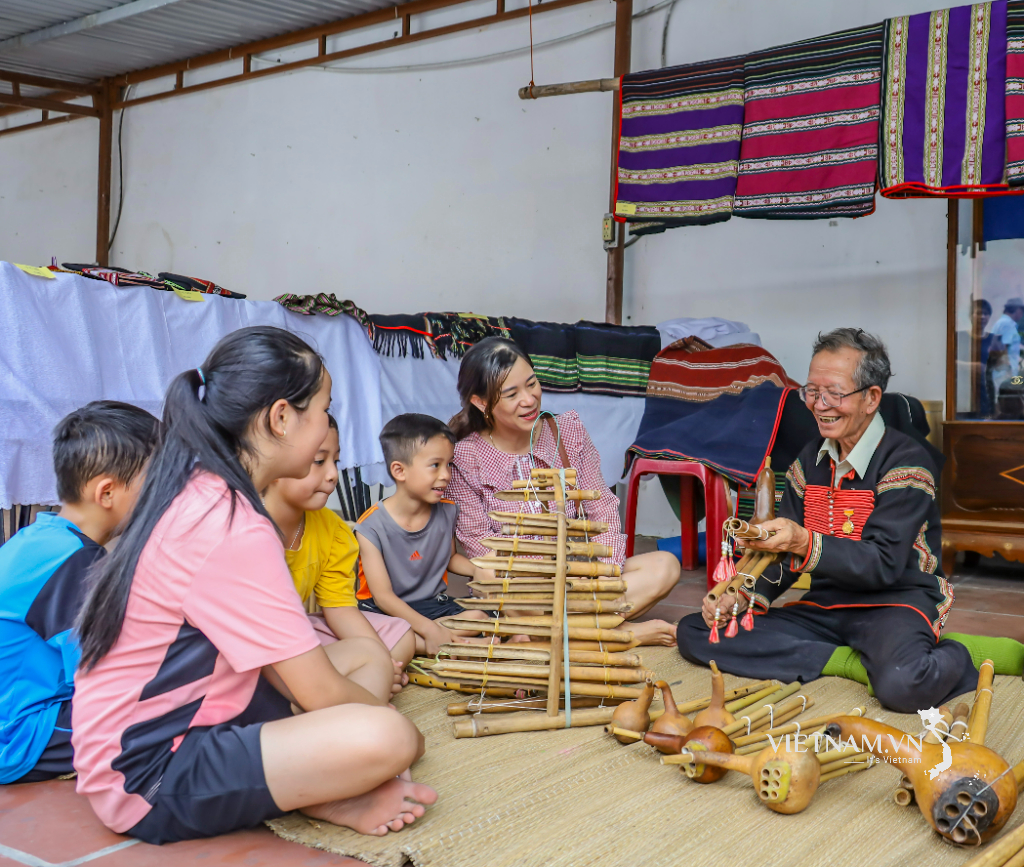
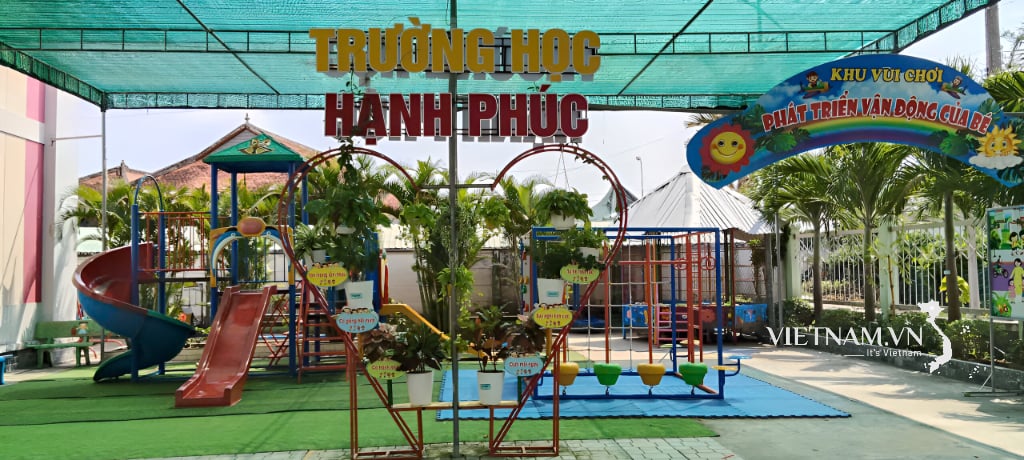

Comment (0)